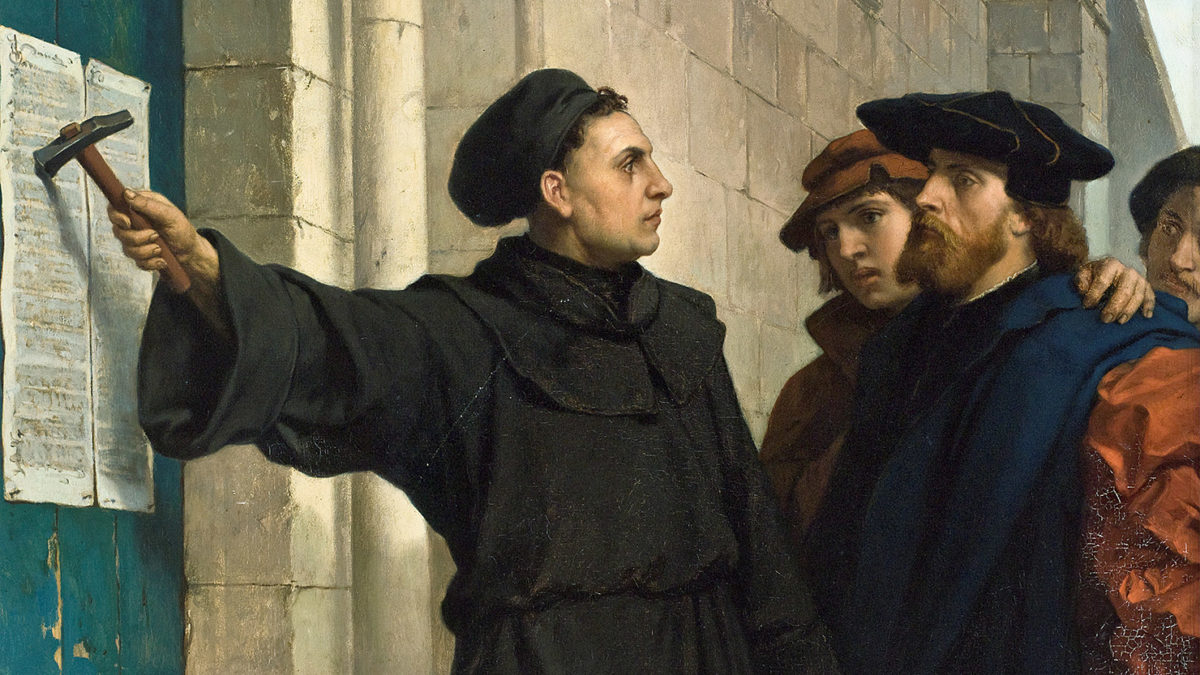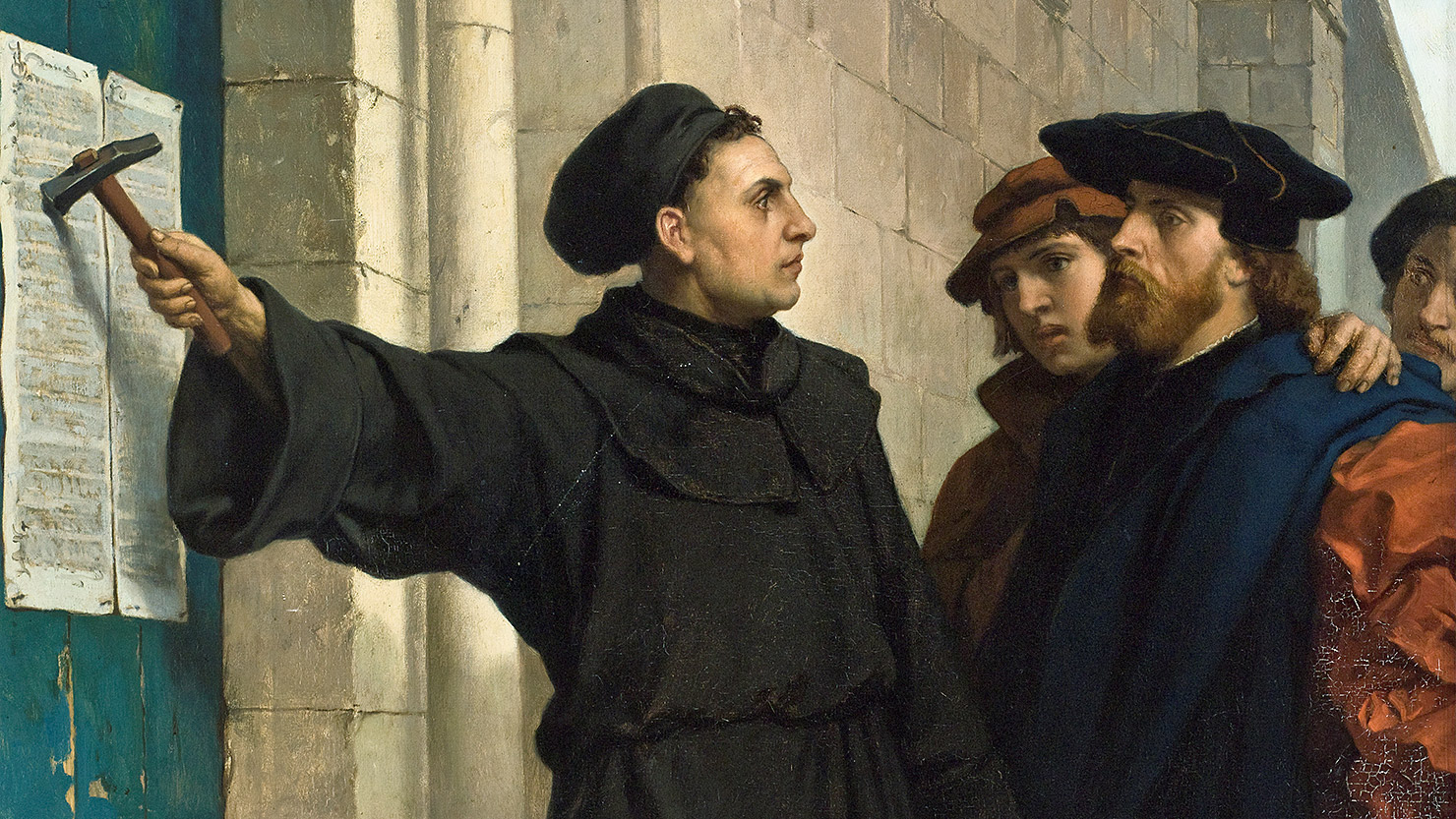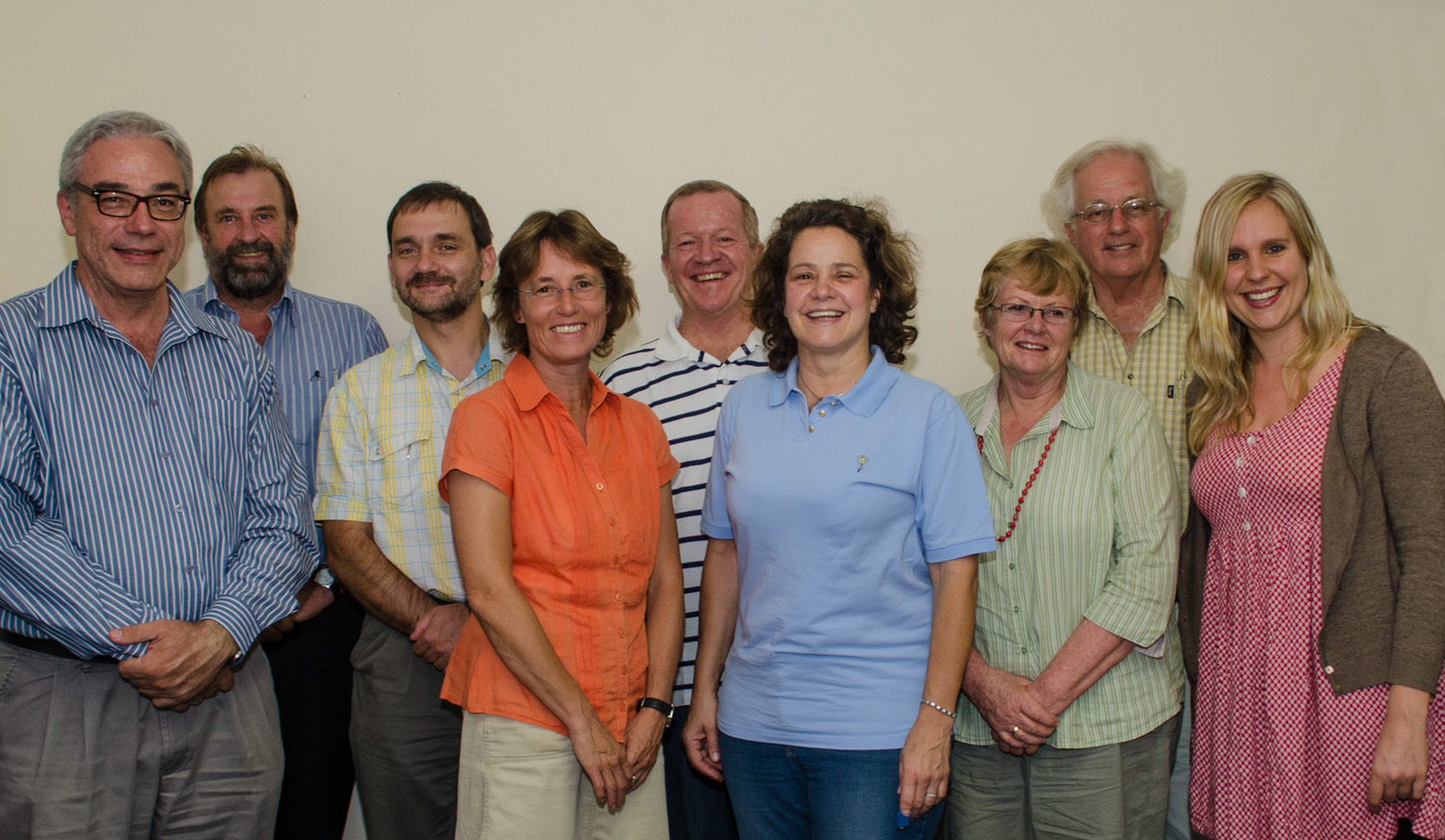Co-missioners,
Today, June 6, we catch ourselves looking back to Normandy beaches littered with dead and mangled bodies. That’s what you get when human beings respond as they must to eruptions of gross and appalling evil. The greater the evil, the more bodies lie mangled.
Today we also look ahead to a celebration of Pentecost this coming Sunday. Pentecost is a key piece of God’s best and most astonishing response to evil at its worst. It throbs with the promise of mangled bodies raised from the dead to an age of ages when evil is no more.
We write to you this week as fellow peddlers of that Pentecost promise. And to help us peddle thoughtfully and well, we send along the first part of a lengthy reflection by the Rev. Felix Meylahn of the Evangelical Lutheran Church in Southern Africa (Cape Church). Pr. Meylahn stunned the Crossings conference in 2012 with a remarkable reflection on Christian faithfulness in the context of post-liberation South Africa. We wrote to him recently to ask if he had anything more that he’d care to contribute to our ongoing conversation. He promptly responded with a piece of work he did in 2017 in connection with that year’s observation of the 500thanniversary of the Reformation. We thought it germane to the matters on today’s table. We think you will too. See especially his extended reflection on what Scripture is for.
Pr. Meylahn is currently serving at the Lutheran Congregation of Stellenbosch and Somerset West. He also holds a position as mentor and tutor for Lutheran theology students who are fulfilling their academic requirements at Stellenbosch University, an institution with roots in the Dutch Reformed tradition.
Peace and Joy,
Occupy Reformation 500
By Felix Meylahn
During 2017 I was prompted by concerned members of the congregation I serve to present a “Faith Course” about Reformation theology. The following essay covers the ideas I compiled for that course. I share it in the hope that it might provoke good conversations and debates about the ongoing relevance of Reformation theology.
+ + +
The material I received in the post in 2017 from the Evangelical Church in Germany (EKD, for Evangelische Kirche in Deutschland) to promote the celebration of Reformation 500 included posters which displayed the motto “Reformation heißt, die Welt zu hintefragen. Feiern Sie mit uns 500 Jahre Reformation. “Freely translated: “Reformation means to question/criticize the world. Celebrate 500 Years of Reformation with us!”
I have to disagree! If anything the Reformation that was launched by Martin Luther was a questioning and deeply critical look at the church, at the ruling theology of the time, and then a radical subversion of that theology and the power it wielded over the people through fear, guilt and superstition. To be honest, much of what is being done and planned for the big celebrations this year (2017) smacks of trying merely to recapture a larger segment of the religiously inclined population by propagating Luther as the big hero, and the Protestant Church—in Germany all the Protestant churches (loosely gathered in the EKD) suddenly claim Luther as their hero—as the exemplary community that stands for all the presently politically correct virtues like tolerance and democracy. Apart from some more academically oriented material, there isn’t much sign of what really lies at the core of the Reformation: the radical critique of the church and its theology.
My intention with this course is to rediscover some of the radical impulses and thrusts that were launched by that rebellious Augustinian monk who rediscovered the freedom of the children of God in the unconditional grace that is given to all through the viva vox evangelii, the living voice of the Gospel.
The impulses that the Reformation brought were of course many and varied—but I have chosen six that stand out as impulses I believe we today will have to rediscover if our church wants to be true to its roots in the Lutheran Reformation andbe relevant to our world today. Let me briefly list them first; then I will share some of my thinking about each one.
- The Reformation was a radical critique not of the world, but of the church and of the ruling theology that gave legitimacy to all kinds of religious and even economic oppression and exploitation of the people during the early Middle Ages.
- As Luther did, we need to rediscover the Biblical literature and learn how to read it again using all the critical tools available to modern scholarship. We are not being true to Luther if we merely read the Bible the way he did. After all, he also used all the new research methods and tools available to him in his day.
- There are dimensions of “Reformation hermeneutics” that we need to rediscover and learn to use again, as they are indispensable for truly understanding the message of the Gospel.
- The core teaching of the Reformation, i.e. the justification of the godless sinner by grace alone, needs to be reformulated in such a way that our own identities are given clarity and direction by it.
- A socio-political reading of everyday life, both public and private, is essential for identifying God’s salvific intentions for the world today.
- We need to develop new institutional forms of a critical praxis of discipleship by which one listens to congregations and the world in which they want to be Christian communities.
1. A radical critique of the church
The Reformation was a radical critique not of the world, but of the church and of the ruling theology that gave legitimacy to all kinds of religious, social and even economic oppression and exploitation of the people during the time leading up to the Reformation.
There is a wealth of material available on “what happened” in the time of the Reformation. Just a brief dip into this wealth will suffice to help us see how the movement was primarily a confrontation with the church and its theology. The famous 95 Theses dig deeply into the church’s greedy abuse of people’s guilt and anguish under the legalistic theology of good works. Luther’s description of his rediscovery of the Gospel in the “Preface to the Complete Edition of Luther’s Latin Works” is joyous reading for anyone needing help in finding the “Aha” of liberating grace again or for the first time.
From the perspective of this “Aha” experience of grace we are called to take a critical look at our own church and its theology as well as a critical look at the prevailing, or should I say, ruling, theology of our culture. Would it be too harsh to say that both our western culture and our churches are in a “semi-Pelagian captivity”?
2. The Story of God’s faithfulness and what it does to us!
As Luther did, we need to rediscover the Biblical literature and learn how to read it again using all the critical tools available to modern scholarship. We are not being true to Luther, if we merely read the Bible as he did. He also used all the new research-methods and means available to him at the time.
Sola scriptura—by Scripture alone—is one of the famous “alones” of the Reformation, but one that was unfortunately absolutized very early in the history of the Reformation. Whereas for Luther it was a consequence of what he had rediscovered in the Bible, it became the starting point among “Orthodox” Lutherans as well as Reformed theologians in the later 16thCentury already. Soon the “dogma” of the verbal inspiration of the scriptures and the complete inerrancy of the whole Bible was developed. I have a long personal history of struggling with this “teaching” and have seen many persons deeply hurt and abused by people who insist that it is an indispensable part of the Lutheran tradition. It is, of course, part of a certain direction taken by in that tradition, but there are Lutherans who do not see it as cast in stone—and I believe they have Luther on their side. I have often asked myself, what is the underlying cause and deeply felt need that gave rise to such a teaching? Having lost the authority of the pope and church hierarchy on good biblical grounds, these theologians strangely feared that the freedom of trusting in the Word of God—the creative, living and proclaimed word of God as the only authority—was going to be too dangerous for simple folks and perhaps even for themselves; so they needed such a teaching/dogma to feel safe about their own faith and the life of the church. In this sense I have much sympathy and understanding for people who cling to such a teaching—the Gospel does indeed give a very scary freedom to all who hear it—but I also see how captive they are and how, for example, they have to shut down part of their critical capacities in order to hold firmly to this dogma.
In contrast, if we read Luther’s writings carefully, we find him working from a completely different basis. His approach to Scripture was shaped first and foremost by his understanding of justification as a stunning gift we receive when we listen intently to the Word of God and hear something very specific, i.e. the proclamation of what Luther called viva vox evangelii, the living voice of the Gospel which announces the justification of of the godless sinner by grace alone through Christ alone and through faith alone. This faith is not a human work but a gift of God, granted to humans through the working of God’s Spirit who creates justifying faith in human hearts when they hear the proclamation of the Gospel.
So, for Luther the Bible is to be read, listened to and proclaimed with a clear distinction always in mind: was Christum treibet—does it promote Christ? From this perspective Luther could be very critical of various texts, even whole books of the Bible, saying rather pointedly that some of them do not proclaim Christ at all. This was, for example, his judgment about the Letter of James and to some extent even the Book of Revelation. He spoke about Christ being the center of Scripture (die Mitte der Schrift) and how we are invited to listen for that center, and while reading to seek out and cling to thosewords in the Word of God that proclaim Christ to us. Do we hear the voice of the Good Shepherd speaking to us? That is the critical question we are free to ask when reading the Bible, when listening to a sermon, when dealing with any dogma of the church. Now, lest we think that reading the Bible in this way turns God’s Word into mere sweet and sentimental love as some critics of Lutheran theology claim, let’s immediately get into the depth of what the proclamation of Christ’s grace really does to us. To understand this clearly, we need to rediscover the other distinction that was famously posited by Luther when speaking about the Word of God. This is the distinction between Law and Gospel. Now this can get really tricky and we’ll need to keep our wits about us. It’s not that certain sections of the Bible are Law and other sections are Gospel—and especially not that the Old Testament is Law and the New Testament Gospel. No, God’s Word acts on us in both ways, and the very same text can sometimes do the one work and at other times the other work. See, for example, the commandments. It’s what God’s Word does to us that is at issue here. When we hear God’s Word there is, as Luther discovered, a double action taking place; God is doing two things to those who listen.
First, we are confronted with God’s will—how God created us to live—and as a result we’re faced with the fact that we do not live according to God’s will; and as we are sternly called to account we realize that, if this is the only word from God, we’re toast. But this isn’t the only word from God. Instead it is the word God uses to drive us into the gracious arms of the Savior to hear the second word. This second word from God is the Gospel, the proclamation that we, although we are godless sinners, are made righteous through grace in Christ, a justification that is given to us and done to us—not one that is expected of us. This distinction of Law and Gospel is the key to all of Scripture, said Luther, and I have myself found both comfort and freedom in this core concept of the Reformation. Luther also said that he would remain a beginner all his life in learning how to do this properly, distinguishing Law from Gospel and proclaiming God’s word rightly so that people would be liberated by it, not troubled and oppressed by it. He insisted that one would have to remain a scholar and an apprentice in this school and training until one reaches heaven. And I agree. It’s not a simple principle to be applied mechanically, it’s an experience that grabs hold of us and “schlepps” us through the hell of affliction (Anfechtung) to the paradise of comfort and salvation (Trost und Heil).
Much more could of course be said about this and we should take some time doing it with some texts. The result of this Lutheran way of working with Scripture is what I’d like to turn my attention to now. What is the effect on us for our reading or listening to the Bible?
It gives us total freedom to use our Verstand—our powers of critical thinking—when dealing with the Bible. There is no need at all to be afraid of using modern and critical methods of study and research, as if anything we discover about the historical background or development of the Scriptures could do any damage to its task of “promoting Christ” to anxious and afflicted sinners. On the contrary, the more we delve into the historical details and nitty gritty of the Biblical texts, the more we will discover how it does its work. Luther used whatever historical and critical means were available to him. He was very grateful to the great humanist scholar, Erasmus of Rotterdam, for putting together a “critical” edition of the Greek New Testament, and he also made every effort to learn as much Hebrew as he could to read and later translate the Old Testament from its original language.
 Research has brought to light much about the origin of the Bible that was not known in Luther’s time. Today we know the Bible to be a complex and in places a rather chaotically compiled collection of texts from very diverse contexts spanning nearly three thousand years—words and stories that had been passed on for many centuries by word of mouth before they were written down. The retelling and much of the writing down was done for various reasons, one prominent one being the various situations of crisis that people found themselves in. They are deeply afflicted. Their faith in the living God is being tested to the utmost. Then someone or some group reminds them of the ancient stories. In other words, this reminding is always done not for historical recording purposes, but for the purpose of reassuring, reclaiming, rekindling and re-establishing faith in the living God in a present crisis. The stories we find in the Bible, although written down by many different people, from vastly different contexts and crisis situations can all be seen as puzzle pieces that make up the one great story of God’s faithfulness. Not that we really know where each piece fits—there are many still lying around and we have no clue as to their meaning or function in the larger picture. But the Story itself is revealed clearly enough to make us come alive with hope in God, anchored in Christ Jesus. It is finally the Story of God’s faithfulness in restoring creation to its intended peace.
Research has brought to light much about the origin of the Bible that was not known in Luther’s time. Today we know the Bible to be a complex and in places a rather chaotically compiled collection of texts from very diverse contexts spanning nearly three thousand years—words and stories that had been passed on for many centuries by word of mouth before they were written down. The retelling and much of the writing down was done for various reasons, one prominent one being the various situations of crisis that people found themselves in. They are deeply afflicted. Their faith in the living God is being tested to the utmost. Then someone or some group reminds them of the ancient stories. In other words, this reminding is always done not for historical recording purposes, but for the purpose of reassuring, reclaiming, rekindling and re-establishing faith in the living God in a present crisis. The stories we find in the Bible, although written down by many different people, from vastly different contexts and crisis situations can all be seen as puzzle pieces that make up the one great story of God’s faithfulness. Not that we really know where each piece fits—there are many still lying around and we have no clue as to their meaning or function in the larger picture. But the Story itself is revealed clearly enough to make us come alive with hope in God, anchored in Christ Jesus. It is finally the Story of God’s faithfulness in restoring creation to its intended peace.
—to be continued.
Thursday Theology: that the benefits of Christ be put to use
A publication of the Crossings Community






You must be logged in to post a comment.